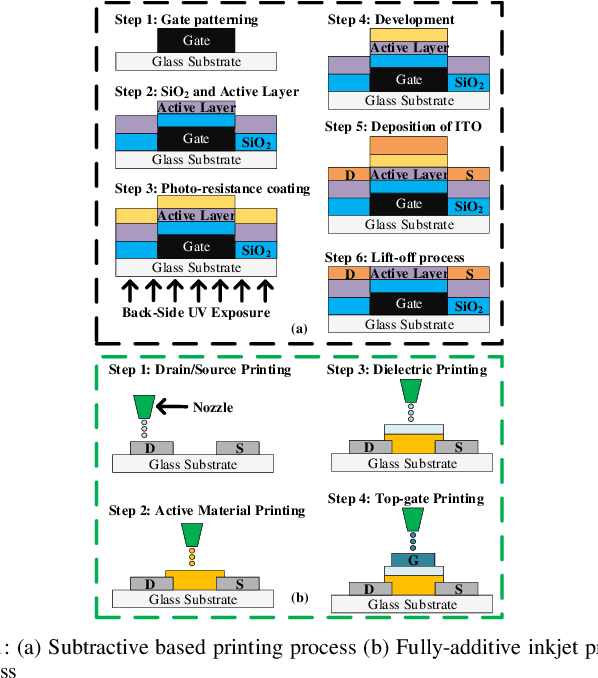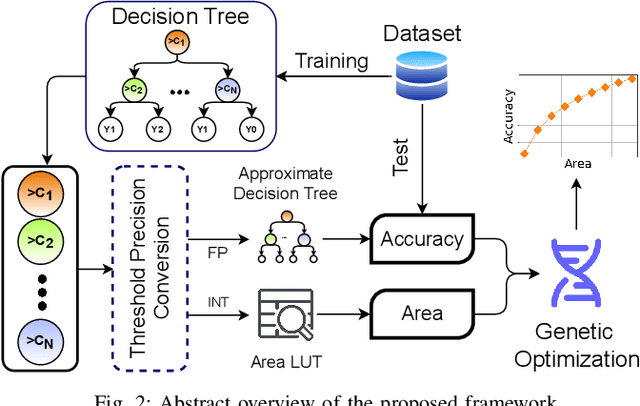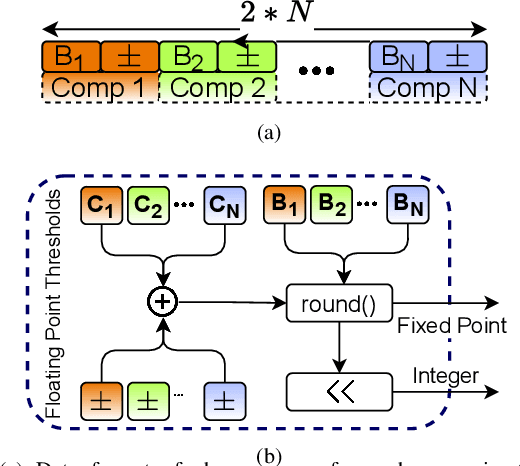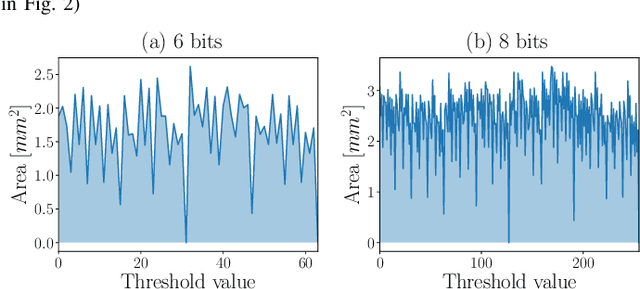Approximate Decision Trees For Machine Learning Classification on Tiny Printed Circuits
Paper and Code
Mar 15, 2022



Although Printed Electronics (PE) cannot compete with silicon-based systems in conventional evaluation metrics, e.g., integration density, area and performance, PE offers attractive properties such as on-demand ultra-low-cost fabrication, flexibility and non-toxicity. As a result, it targets application domains that are untouchable by lithography-based silicon electronics and thus have not yet seen much proliferation of computing. However, despite the attractive characteristics of PE, the large feature sizes in PE prohibit the realization of complex printed circuits, such as Machine Learning (ML) classifiers. In this work, we exploit the hardware-friendly nature of Decision Trees for machine learning classification and leverage the hardware-efficiency of the approximate design in order to generate approximate ML classifiers that are suitable for tiny, ultra-resource constrained, and battery-powered printed applications.
 Add to Chrome
Add to Chrome Add to Firefox
Add to Firefox Add to Edge
Add to Edge